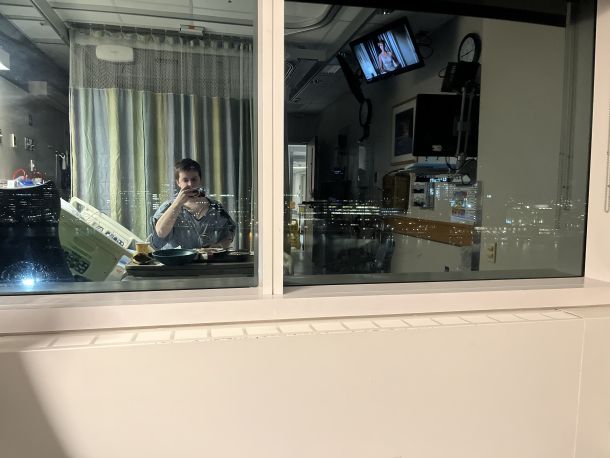Ben
What was your life like before you received the COVID-19 vaccine?
Describe the symptoms and the timeline of the reaction.
December 15th 2021 was the last normal day I'd have for a very long time. I worked in the morning, went to the gym, got my booster (moderna in left arm) at about 5 PM, then finally went to a work holiday party to see coworkers and eat pizza (I don't drink).
When I was walking home at around 9:30 I started to feel the first side-effects of the booster. A little achy-ness and little fatigue. By 10:15 I was asleep. Around 2:30 AM I woke up and have never felt so terrible in my life. Every muscle in my body hurt and I felt a heavy (~25 lbs) weight on my chest. I spent almost all of December 16th sleeping or trying to sleep. December 17th I woke up to the same chest pain in the night. I felt fine the afternoon of December 17th, but in the evening the pain came back. This continued until December 19th when I was told by a family member to go to the hospital.
When I went to the ER they did a few blood tests and an EKG. The doctors didn't seem too concerned until my Troponin-T levels were almost 90x the maximum "normal" value. They took a CAT scan to verify I didn't have an active blockage in my heart, then they told me I needed to be admitted into the EW and kept there a few days. I walked into the hospital around 9 AM, diagnosed with myocarditis around noon, and wasn't in my room until about 7 PM because getting my room ready took so long.
I had a few inpatient procedures during the two days I was in the hospital. They did a covid antibody test and a bacterial antibody test to rule out other possible vectors for the cardiac inflammation (I hadn't had covid and the coxsackie antibody test didn't have any interesting results), they did an echo, and they took an XRay of my lungs (I think as a pneumonia check? I don't know why). I was ultimately diagnosed with "covid-vaccine myopericarditis". I was entered into VAERS (ID 1962935-1). Once all the tests were completed no nurse or doctor I ever met ever doubted the cause and all my paperwork makes the link to the vaccine clear.
December 22 I got an MRI and my left and right ejection fraction were measured at 51 and 52 respectively.
I was initially prescribed asprin for 2 weeks and colchicine, but when the 2 weeks of asprin ended I had a terrible pain in my back from the colchicine and I had to change my prescription to ibuprofen taken 3x/day.
The next four and a half months were incredibly difficult. I spent hundreds of hours in pain alone on my couch. Sometimes I was in pain all day, sometimes I was in pain most of the day, and on some rare days I had almost no pain at all. I took up an art project making a special bag for my grandmother's 92nd birthday, I spent a lot of time with friends playing Magic: the Gathering, and cooked a lot of good food. When I started taking the ibuprofen I gave each day a "pain scale" out of 5 and over time there were less 5s and more 3s then all 2s until the 2s became 0s. Despite eating ~2,000 calories/day I lost 25 pounds between Dec 15 and April 20.
By early April the pain was ~5 seconds/day (a big step up from 8 hours/day in January), and by the end of April I was able to get back to lifting weights again. June 21 I had my follow up CMRI and my cardiac ejection fraction was measured at 66. The small fibrosis on my heart shouldn't have any effect on my heart's pumping function. Total cost was a little over 5 grand; I hit my health insurance out of pocket max.
Now that I'm healed I feel like I have a special duty to make sure people know about these adverse reactions, and I hope my story can give hope to other people who have gotten myocarditis that healing is possible
Describe the solutions that helped your symptoms
Which solutions were not helpful?
What would you like others to know?
-
I certify that the statements made in the above submission are true and correct to the best of my knowledge, information and belief.
-
I agree to allow React 19 to share my testimonial publicly on its website, social media, or webinar platforms. I further understand that my testimonial will be posted publicly and React 19 cannot prevent third-parties from sharing it once public.
-
I agree to notify React 19 immediately should I discover inaccuracies in my testimonial in order to maintain the integrity of React 19's advocacy platform.

Details
-
Moderna Vaccine:15 December 2021
-
Injury Date:
16 December 2021 -
State/Region:
MA -
Country:
US
